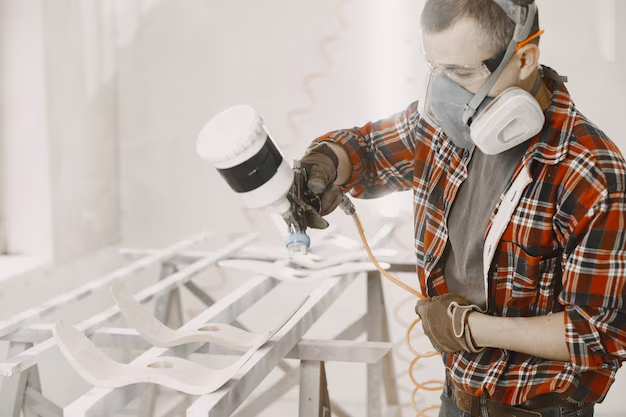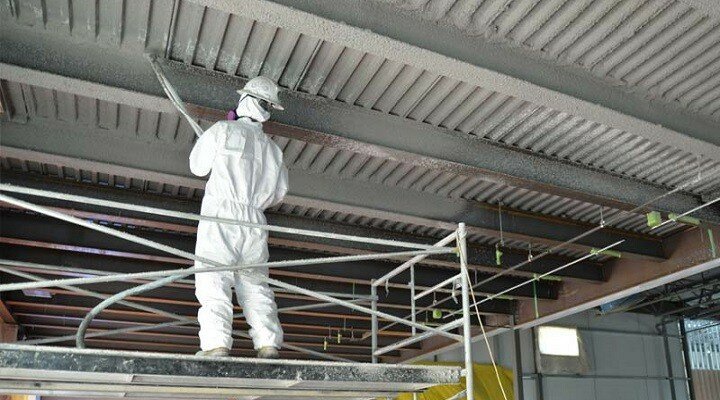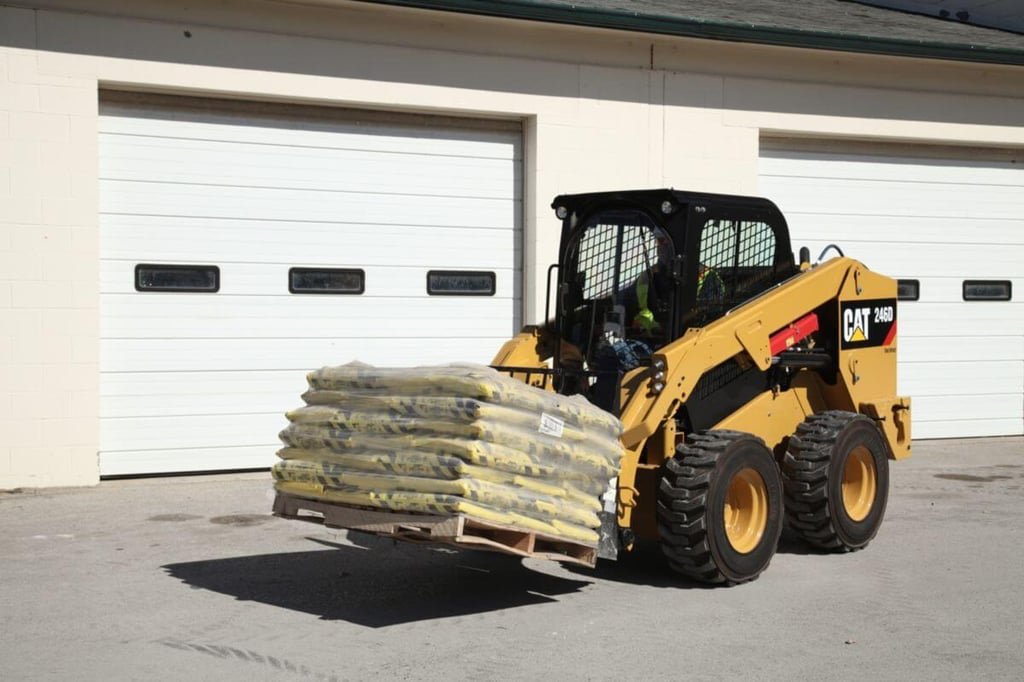If you’ve been thinking about starting a spray foam insulation business, you’re in the right place. This article dives into everything you need to know about the spray foam insulation industry, from the basics to tips on setting up shop and winning your first customers.
Spray foam insulation has become increasingly popular because of its energy efficiency, durability, and ability to save homeowners money on heating and cooling costs. That demand is great news if you’re considering launching a business in this field—it’s a booming industry with potential for growth. But before you jump in, let’s go over what it takes to build a successful spray foam insulation business.
What is Spray Foam Insulation?
Spray foam insulation is a product that’s applied as a liquid and then expands into a thick foam, filling gaps and providing a powerful insulation barrier. It’s ideal for sealing walls, roofs, attics, and even hard-to-reach places in homes and commercial buildings. This insulation method has several advantages, including energy savings, moisture resistance, and soundproofing. Given these benefits, it’s no wonder that more and more customers are looking for professional spray foam insulation services.
Why Start a Spray Foam Insulation Business?
The demand for spray foam insulation is high, and it’s likely to grow as more homeowners and businesses prioritize energy efficiency. A spray foam insulation business can be a profitable venture if you provide quality services, build trust with clients, and establish yourself as a local expert. Plus, you’ll be helping people create comfortable, energy-efficient spaces, which makes it a win-win situation.
Let’s explore the key steps to getting started.
Steps to Start Your Spray Foam Insulation Business
1. Research the Market
Before starting any business, understanding the market is essential. Research your local area to determine if there’s enough demand for spray foam insulation services. Look at your competition: how many other insulation companies are there? Do they offer spray foam insulation, or do they focus on other types? Knowing the competitive landscape will help you find ways to stand out.
2. Develop a Business Plan
A business plan is your roadmap to success. It should outline your goals, target market, marketing strategies, financial projections, and any resources you’ll need. This document is especially important if you plan to seek financing or investors.
Here’s a quick outline of what to include:
- Business overview: Describe what your business will offer, like residential, commercial, or industrial spray foam insulation.
- Market analysis: Summarize your findings about the demand and competition in your area.
- Services: Outline the specific services you plan to offer.
- Marketing strategy: How will you attract and retain customers?
- Financial projections: Estimate your costs, pricing, and expected profit margins.
3. Get Proper Training and Certification
Spray foam insulation requires specific skills and knowledge. Consider enrolling in a certification program to learn the ins and outs of spray foam application, safety protocols, and equipment maintenance. Certification not only helps you learn best practices but also assures customers that you’re a trained professional. Many states and regions require certifications for insulation businesses, so check the regulations in your area.
4. Purchase Equipment and Supplies
To start a spray foam insulation business, you’ll need equipment like a spray foam rig, protective gear, and safety tools. Here’s a list of essentials:
- Spray foam rig (a system with compressors, heaters, and hoses)
- Protective clothing and respirators
- Foam materials and storage containers
- Safety equipment (fire extinguishers, first aid kits)
Investing in high-quality equipment is essential since faulty or cheap equipment can lead to safety issues and poor-quality work.
5. Obtain Necessary Licenses and Insurance
Starting any business comes with legal responsibilities. Look into the licenses and permits required for a spray foam insulation business in your state or country. General liability insurance is also a must-have to protect you and your clients in case of accidents or property damage.
6. Set Up a Marketing Strategy
Marketing is crucial for any new business. Start by creating a professional website to showcase your services, including customer testimonials, a portfolio of past work, and informative blog posts about spray foam insulation. Having an active online presence will make it easier for potential customers to find you.
Consider other marketing tactics like:
- Social media advertising on platforms like Facebook and Instagram.
- Google Ads to attract local customers searching for insulation services.
- Networking with real estate agents and contractors who may refer customers to you.
Offering free consultations or discounts for first-time customers can also be an effective way to build your initial client base.
7. Deliver Quality Service and Build Your Reputation
Your reputation is everything in the service industry. Always prioritize customer satisfaction by showing up on time, being professional, and delivering quality work. Word-of-mouth referrals can significantly impact your business growth, so make each job count.
If you receive positive feedback, ask your clients to leave reviews online, as this will boost your credibility and attract more business.
Costs to Consider in a Spray Foam Insulation Business
Starting a spray foam insulation business requires an initial investment, but the exact cost can vary based on factors like equipment quality, training fees, and marketing expenses. Here’s a rough estimate:
- Equipment and materials: $10,000–$20,000
- Training and certification: $500–$1,500
- Marketing and advertising: $1,000–$5,000
- Licensing and insurance: $1,000–$3,000
Setting aside some emergency funds for unexpected costs can be helpful, especially in the early stages.
Common Challenges in the Spray Foam Insulation Business
Every business has challenges. Here are a few you might face:
- Upfront costs: Equipment, materials, and training can be pricey.
- Competitive market: Standing out in a crowded field can be tough.
- Seasonal demand: Insulation work might be slower in warmer months, so planning for fluctuations is essential.
Conclusion
Starting a spray foam insulation business can be a rewarding and profitable venture, but it requires a strong plan, dedication, and the right skills. From understanding your local market to building a solid reputation, each step is crucial to growing your business. As you get started, focus on delivering high-quality work, educating your clients, and continuously improving your services.
With the right approach, you can build a successful spray foam insulation business that provides valuable services and meets the growing demand for energy-efficient solutions.
FAQs
1. Is a spray foam insulation business profitable?
Yes, spray foam insulation businesses can be highly profitable, especially with the increasing demand for energy-efficient home solutions. If you offer quality service, build a strong reputation, and market effectively, you can achieve a good return on investment.
2. How much does it cost to start a spray foam insulation business?
Starting costs vary but can range from $15,000 to $30,000. This includes equipment, training, licensing, and initial marketing efforts. Costs may be lower or higher depending on your region and the equipment quality.
3. Do I need certification to start a spray foam insulation business?
Certification is not always required, but it’s highly recommended. Certification gives you valuable skills and helps build trust with clients. Additionally, some regions do require certification to operate legally.
4. What is the primary market for spray foam insulation?
The main market includes residential homeowners, commercial building owners, and industrial sites. Homeowners and businesses looking to reduce energy costs are often the top customers for spray foam insulation services.
5. How can I attract customers to my spray foam insulation business?
Start by creating a professional website, utilizing social media, and connecting with local contractors and real estate agents. Offering free consultations, discounts for first-time customers, and asking satisfied clients for reviews can also help grow your customer base.











